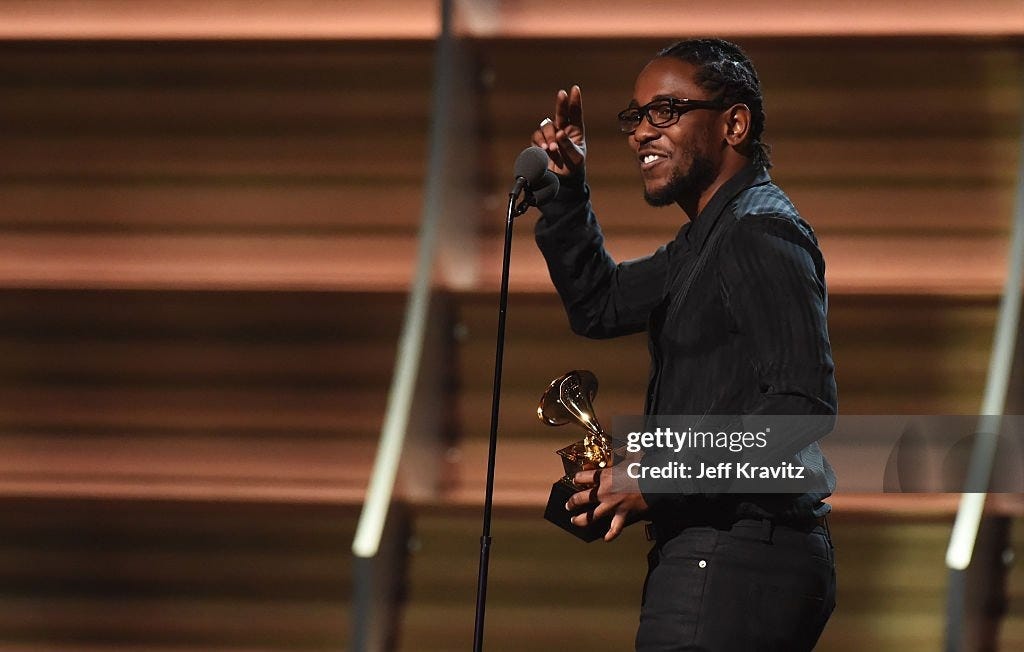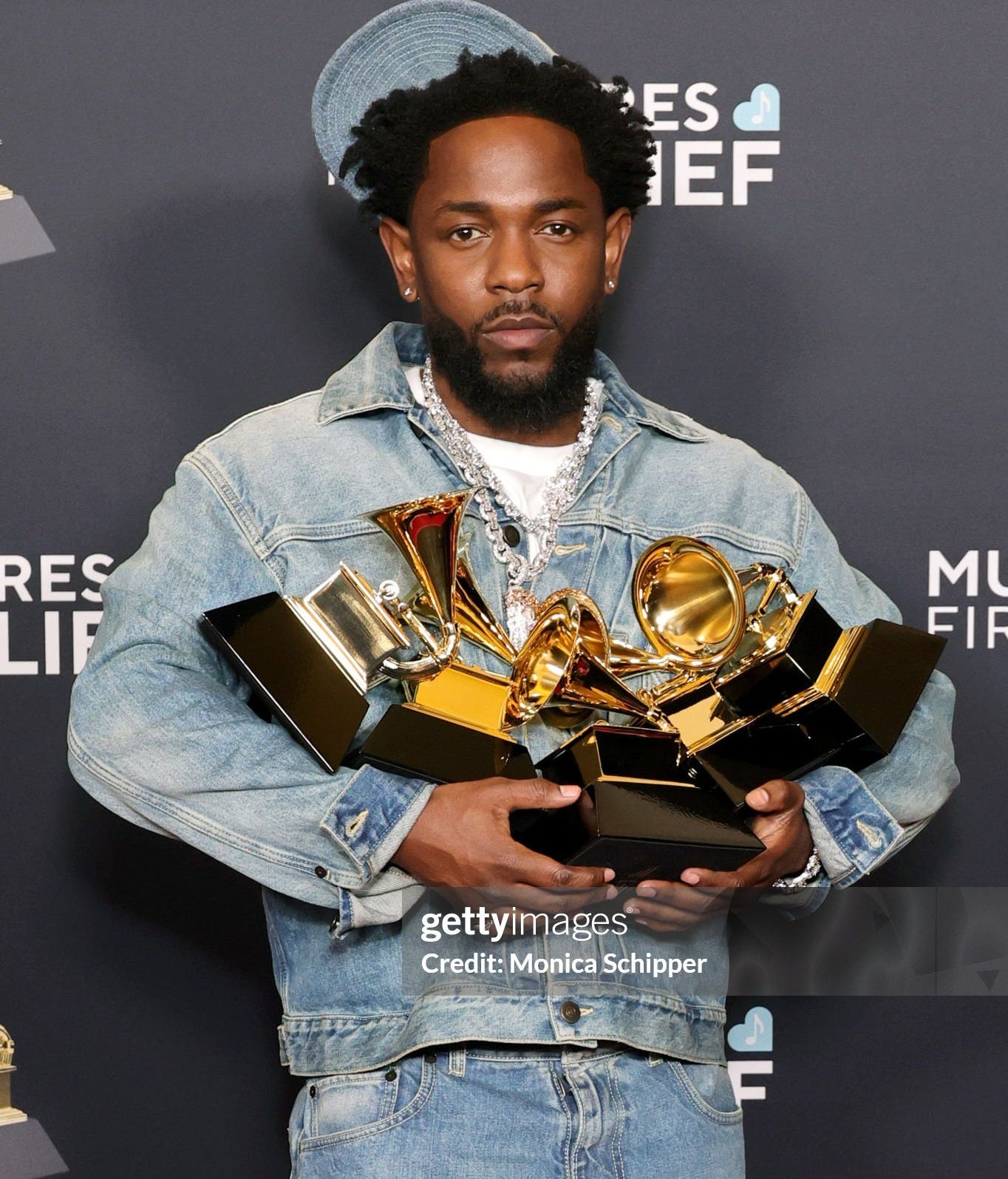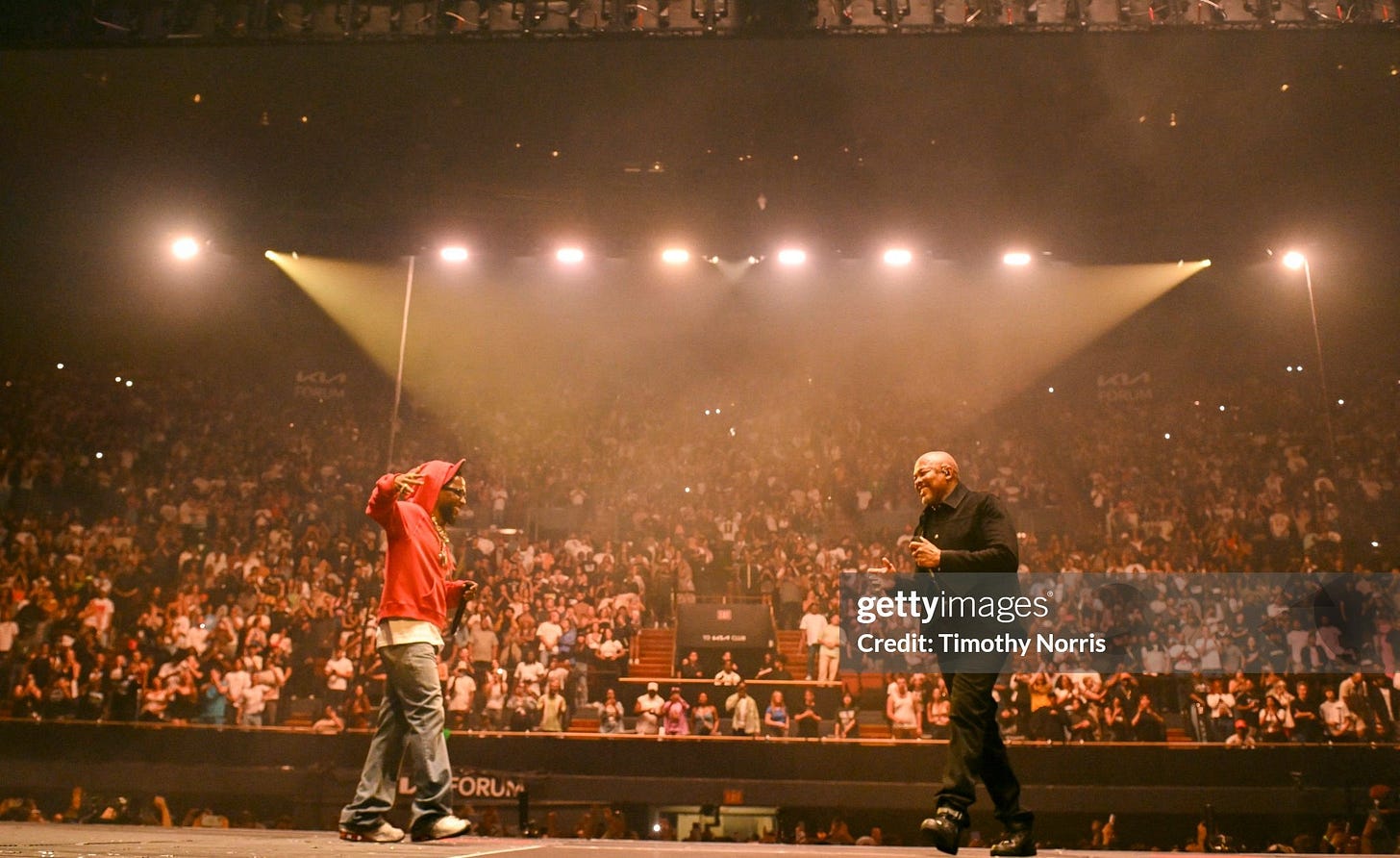Happy Birthday, To Pimp A Butterfly
One of the greatest albums of all time turns 10 years old.
Kendrick Lamar has worn several crowns in his life, even the biblical crown of thorns. But, none is as unanimous as the one he possesses with his third studio album.
Argued as “the best album of the 21st century” by The Verge, Lamar’s To Pimp A Butterfly was released 10 years ago. The 16-song album, with singles like ‘The Blacker the Berry’ and ‘These Walls,’ defined not only his career, but a generation of hip-hop.
The album was starkly different in both content and sound from anything released that year, or in its time period for that matter. The production blends jazz, soul and neo-soul with hip-hop in ways that create an aural fusion of genre while still being cohesive. Lamar walks a tightrope of keeping listeners engaged while conveying complex and intricate ideas, and does so flawlessly.
Its outside of music made the album one of the most influential of its time. One of the most notable examples of this is the public discourse sparked by the hit song ‘Alright,’ where he unapologetically and defiantly expressed his anger about police brutality. Unlike his usual use of symbolism and double meanings, here Lamar was blatant and direct.
“And we hate po-po/ Wanna kill us dead in the street for sure”
Kendrick Lamar, Alright
These lyrics were harshly critiqued on Fox News by political commentator Geraldo Rivera. Lamar’s message had eclipsed past the world of rap. The brazen provocativeness of his words increased awareness about police brutality. Despite some negative reception from media pundits, the larger political commentary of the song made its mark.

This moment came full circle when protesters used lyrics from ‘Alright’ as rallying calls during Black Lives Matter protests both in America and internationally. The song had at this point become more than a single and was cemented into the grand scheme of music.
Lamar’s spot as the greatest rapper of this generation was cemented with the viral album. It followed J. Cole’s 2014 release ‘2014 Forest Hills Drive’ and Drake’s ‘If You’re Reading This It’s Too Late’ mixtape in 2015. Both projects were considered some of the best work of both artists respectively. Cole’s album is considered a classic amongst hip-hop purists and Drake outsold Lamar.
Neither of these feats were enough to close the gap that had been created in the race between the three titans.
Despite great efforts from two of the biggest rappers in the world, Lamar took the top spot when he released To Pimp a Butterfly. With multiple publications including Rolling Stone calling it one of the greatest albums of all time, consensus critical acclaim and several Grammys won it was clear that he had created a work that can never be replicated.
Unbeknownst to the world at the time, Lamar overtaking his two greatest contemporaries in 2015 foreshadowed the biggest battle in hip-hop history. Both Cole and Lamar made claims of being the best rapper alive throughout the entirety of the 2010’s, but between Lamar and Drake there were more bitter undertones.

They traded shots at each other throughout the decade with ‘King Kunta’ featuring one of the more incendiary ones. He accused Drake of using ghostwriters, which in hip-hop is sacrilege because it betrays the originality the art form is based in. One’s ability to execute clever wordplay or shows of technical ability are indicative of skill as an artist. Insinuating that these things aren’t of an artist's own creation is to question their validity as a rapper.
“I can dig rappin’, but a rapper with a ghostwriter? What the fuck happened / I swore I wouldn’t tell, but most of y’all sharing bars like you got the bottom bunk in a two man cell.”
Kendrick Lamar, King Kunta
The vulnerability Lamar displays throughout the album is a vital piece of its success. An exemplifying example is ‘u’ in which he raps with fluctuating vocal inflections, sounding as if he’s crying at points. The song vividly portrays a drunken rant of self-hatred as Lamar spills his deepest insecurities to listeners. The viscerality of Lamar’s pained screams at the beginning of the song and the gasps in between lines make the image of an inebriated and broken man experiencing a meltdown crystal clear.
‘The Blacker The Berry,’ while not as visually imaginative, is equally as evocative as ‘u.’ Instead of sadness and insecurity the delivery is rageful and spiteful. Lamar rapped fervently about various oppressive faucets of the American political system, making clear reference to police brutality and the CIA’s involvement in the crack epidemic.

He objects to these injustices with fervor, radiating intensity in both lyrics and tonality. While expressing his indignation Lamar is still lyrically clever, using the racist connotation of the word Aryan to express his black pride through a use of ironic wordplay.
“I’m African-American, I’m African, I’m black as the heart of a fuckin’ Aryan.”
Kendrick Lamar, The Blacker The Berry
One of Lamar’s lyricism masterpieces was in ‘These Walls,’ where he discusses the walls in his life — the ones in prison, a vagina and his mind. The walls each affecting Lamar differently through lust, wrath and pride, a few deadly sins – an ode to Christianity as Lamar kins to.
He described how he got revenge on the man who killed a friend of his through sex with the mother of the man’s children while the man was in prison. The final wall Lamar faced was the one inside of his head, where he argued with the morality of using his fame and power to seek revenge.
“These walls could talk, they’d tell me to swim good / No boat, I float better than he would / No life jacket, I’m not the god of Nazareth.”
Kendrick Lamar, These Walls
Lamar’s multi-genre album To Pimp A Butterfly transcends time. It remains impactful and influential, even a decade later. Its mark on music is undeniable and irreplicable, standing as one of the most important pieces of music ever made.
Micheal Jacobs III is a staff writer for The Palmetto. He thinks Jordan versus Lebron is the most overrated debate ever. His main focuses are music, basketball and combat sports.
Kyaia Villegas is the editor-in-chief of The Palmetto. They created this website as a way to continue doing journalism. Their main focuses are sports and LGBTQ+ issues, both nationally and in South Carolina.





